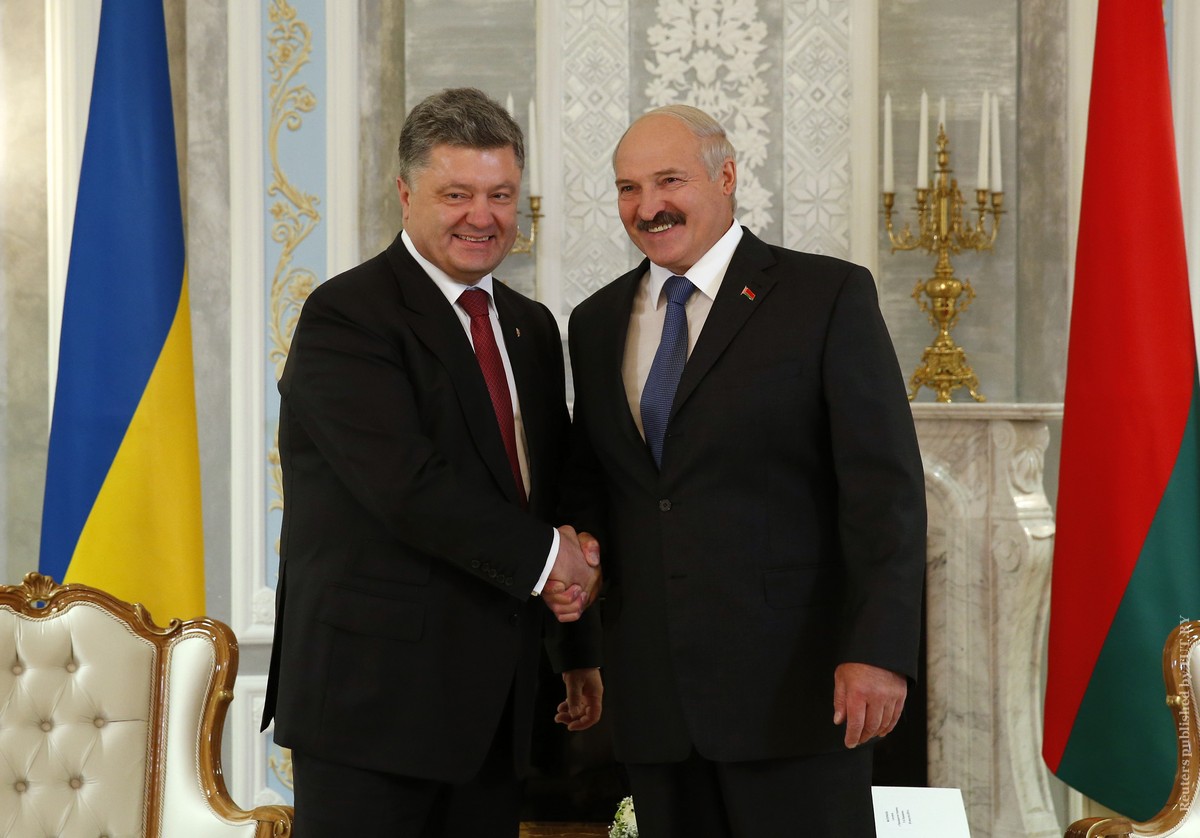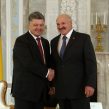
Belarus-Ukraine Relations Beyond Media Headlines
Publication: Eurasia Daily Monitor Volume: 13 Issue: 57
By:

Belarus-Ukraine relations are often ignored as a crucial factor for regional developments in Europe’s East, as well as for each country’s foreign policy. For example, the recently released study “Ukrainian Prism: Foreign Policy in 2015” does not mention Belarus among Ukraine’s key foreign policy partners (Ukrainian Prism, March 21). Also, the media tend to present a chaotic and contradictory picture of the relationship. In reality, however, there is a great deal of coherence and strategic significance in Belarus-Ukraine relations, even despite multiple difficulties.
Minsk has become the main venue for diplomatic negotiations aimed at resolving the crisis and war in Donbas. It held two top-level summits—in August 2014 (European Union–Ukraine–Eurasian Economic Union format) and in February 2015 (Normandy format)—and it hosts regular meetings of the Trilateral Contact Group on Ukraine. The implications of the Minsk peace process for Ukraine’s interests remain hotly debated (see EDM, February 19, 23; Ukrainskaya Pravda, January, 29); yet, the Minsk talks have undoubtedly become a central factor for the Ukrainian government’s internal and foreign policies.
Moreover, Belarus’s diplomatic role in the protracted Ukrainian peace process is, in fact, more meaningful than just offering coffee and a round table for discussions. At the February 2016 conference of the Minsk Dialogue track-II initiative, Belarusian Foreign Minister Uladzimir Makei stated that Minsk is ready to provide all of the logistical, secretariat and protocol functions to the Trilateral Contact Group (Mfa.gov.by, February 11). In fact, the Belarusian foreign ministry already unofficially performs most of these functions and, thus, has an indirect influence on the flow of the peace process, according to a Ukrainian diplomat who spoke on condition of anonymity (Author’s interview, February 11). This fact alone makes Belarus a crucial partner for Kyiv.
At the bilateral level, Belarus-Ukraine relations sometimes appear shakier than they truly are. Public disagreements on minor issues happen often, and these become exaggerated in the media. A recent case has to do with Minsk’s refusal to allow Ukrainian citizens from entering Belarus with new plastic ID cards; referring to the Visa-Free Agreement between the two countries, the Belarusian authorities require that Ukrainian visitors carry their paper passport booklets (Tut.by, March 5). In its turn, Ukraine’s foreign ministry adheres to a differing interpretation of the agreement (Tut.by, March 6). Even though this dispute will almost certainly end after a round of diplomatic consultations, it has already been presented as a row by some media (BelTA, March 6).
Where bilateral relations really become difficult from time to time is in the economic realm. Public disagreements and even mini-scandals repeatedly erupted before the outbreak of the Ukrainian Revolution of Dignity and consequent replacement of Viktor Yanukovych’s government, in February 2014 (Obolon, January 14, 2011; Onliner, April 19, 2013; Zn.ua, May 17, 2013). And such disputes also occur now, in most cases resulting from protectionist policies.
A fresh such dispute involved mutual threats to introduce extra duties on each other’s goods. It broke out in August 2015, after the Belarusian government adopted a decree subjecting all foreign goods, including Ukrainian but excluding those originating from the Eurasian Economic Union, to mandatory sanitary and hygienic certification (Thinktanks.by, January 14). Kyiv retaliated by proposing a special 39.2 percent duty on certain Belarusian goods (Nasha Niva, January 14). After long discussions and public arguing, the parties announced that they would abstain from any counter sanctions. Moreover, Belarus did not introduce trade restrictions on Ukrainian goods after the free trade pact between Ukraine and the EU entered into force on January 1, 2016.
Yet, the Belarusian authorities watch the implementation of the EU-Ukraine free trade agreement with caution. The inflow of European goods to the Ukrainian market (about 70 percent of EU goods are now duty free) is often seen as a potential challenge to low-competitive Belarusian producers (Naviny.by, January 6). Together with the problem of small arms trafficking, it makes the Ukrainian border, in President Lukashenka’s opinion, a major source of threat to Belarus’s national security (BelTA, December 16, 2015).
A governmental working group was set up to monitor imports from Ukraine during the first quarter of 2016. However, the Belarusian authorities, unlike their Russian colleagues, do not perceive the situation in strictly black-and-white tones. Rather, they are considering new opportunities that might be available as a result of the EU-Ukraine trade deal and Ukraine-Russia sanctions. One such potential opportunity is to fill the share of the Russian market formerly held by Ukrainian producers. In 2014, Ukraine’s main exports to Russia consisted of machines and equipment, metal, chemical products, and food. Here, only the food sector is promising for Belarus. Another opportunity is to create joint companies with Ukraine, in Belarus, in order to access the Eurasian Union market, and in Ukraine, with an eye toward selling to the EU (Naviny.by, January 6).
The military sphere is another topic in Belarus-Ukraine relations that the media often misrepresents. Since the war in Donbas broke out, Belarus has been working on securing its border with Ukraine. On February 3–5, a large-scale military drill with the use of artillery and missiles took place. In particular, Belarusian forces employed Tochka-U tactical missile complexes, Smerch, Uragan and Belgrade multiple launch rocket systems, as well as long-range cannons (Belinstitute.eu, March 14).
However, Ukrainian experts and diplomats did not express much concern about the drill. Military expert Dmytro Tymchuk, Ukrainian parliamentarian and coordinator of the Information Resistance blog, opined that, “at the moment, Ukraine cannot consider Belarus as a source of potential military threat” (Obozrevatel, February 5). According to him, his team had conducted an analysis of a hypothetical scenario whereby Belarus is used as a base of attack by the Russian military. They came to the conclusion that this is improbable. In his words, the dense forests and swamps of Belarus’s southern Polesie region, which borders on Ukraine, would make such an invasion corridor extremely difficult for Russian forces to utilize. For this reason, that area was not affected by large-scale fighting in World War II. The aforementioned Ukrainian diplomat expressed similar views (Author’s interview, February 11).
Media narratives often distort the reality of Belarus-Ukraine relations. Some observers explain this and the fact of recurring economic disputes by the absence of a “strategic vision for a long-term relationship” (Inosmi, November 30, 2015). To a certain degree, they are right. But this is also a typical feature of inter-state relations in the post-Soviet space, where politics is mainly about tactics, and fighting protectionist trade wars is part of the political culture.




